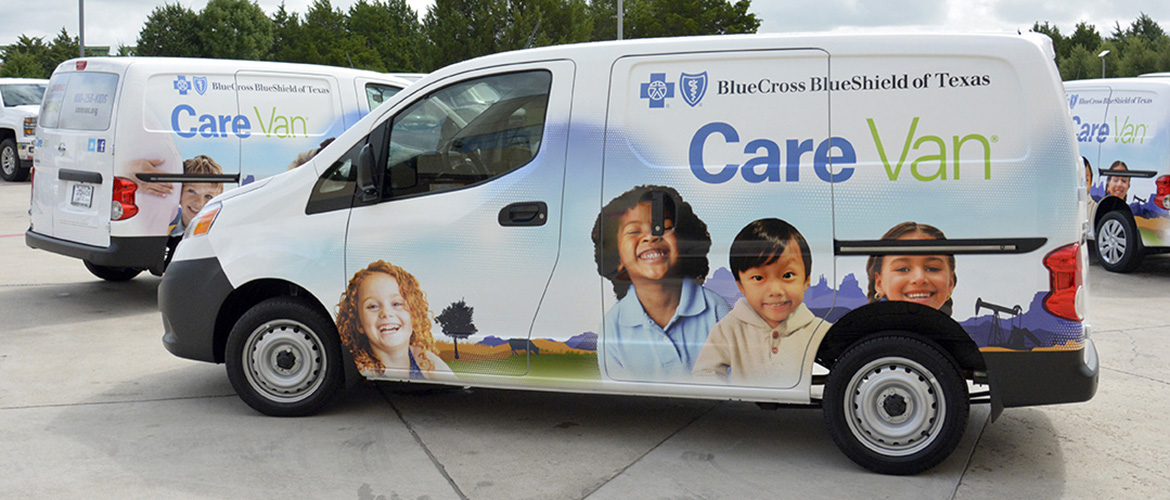As El Paso County started becoming one of the nation’s worst COVID-19 hotspots last fall, community focus groups revealed how social and economic differences made the pandemic harder on populations of color.
Basic information about hand washing, mask-wearing and social distancing didn’t go far enough to address complex circumstances facing the county’s nearly 700,000 Hispanic residents. Many live in multigenerational homes and hold jobs that don’t allow remote work. They needed help reopening businesses and protecting themselves at work to reduce risk of infecting themselves and vulnerable family members.
“There was a lot of distrust and public disconnect,” says Andrea Tawney, vice president of institutional advancement at Texas Tech University Health Sciences Center El Paso. "They wanted to hear from front-line people who could speak to what their experiences are.”
To help bridge the gap, her university has partnered with the Caring Foundation of Texas and its Care Van Program to have nursing students meet residents in underserved communities and provide health information and education, as well as build relationships.
“We’re putting people on the front lines and letting them answer residents’ questions.”
The goal is to help all El Paso County residents become more knowledgeable about the COVID-19 vaccine and improve their long-term health.
“We’re targeting hard-to-reach residents — those with no internet access and who are at highest risk for COVID-19,” Tawney says. “We’re putting people on the front lines and letting them answer residents’ questions.”
Latino and Hispanic populations suffer disproportionately high rates of underlying health conditions — such as obesity, diabetes, heart and lung diseases and immune deficiencies — which make them much more likely to get seriously ill from the novel coronavirus. And longstanding disparities in employment, housing, transportation, education and health insurance availability have put them at higher risk of contracting COVID-19.
Hispanic residents make up about 83% of El Paso County’s population yet account for more than 90% its reported COVID-19 cases and more than 90% of COVID-19 deaths. Statewide, Hispanic residents make up roughly 40% of the population and 46.5% of reported COVID-19 deaths.
Texas Tech’s efforts in helping El Pasoans protect themselves against COVID-19 is an extension of the work it already had been doing before the pandemic in partnership with the Care Van Program, supported by Blue Cross and Blue Shield of Texas. Together, they have provided health education and services to improve residents’ access to care and information.
“We felt it was important to help areas like El Paso that have been affected by the pandemic, particularly when it comes to receiving health information and equitable access to preventive care,” says Sheena Payne, Caring Foundation executive director. “Health care literacy is a vital component to addressing inequities. This partnership is crucial because it puts medical professionals where families live to educate them about the importance of protecting themselves and their loved ones.”
For more than two decades, the Care Van Program has supported communities statewide by helping administer more than 1.3 million CDC-recommended vaccinations, as well as dental screenings and health education and testing services. Vans go to schools, churches and community centers to reduce health care disparities and geographic barriers in Texas.
Texas Tech nursing students, many of whom are Spanish-speaking El Paso area residents, will answer COVID-19 questions and offer additional health information and education to improve health outcomes for residents of the county’s most impoverished neighborhoods.
“The nursing school students are also helping to debunk myths about the virus and the vaccine,” Payne says. “Additionally, we are partnering with medical students in the area and they are providing preventive healthcare screenings, such as lipid tests, blood pressure checks and glucose screenings to adults and vaccinations and nutrition education to children.”
Ultimately, Tawney wants to develop more partnerships to provide the community with access to technology and job-training assistance to help residents improve their long-term social and economic circumstances.
“We need to be thinking more comprehensively about how we impact health outcomes,” she says.

